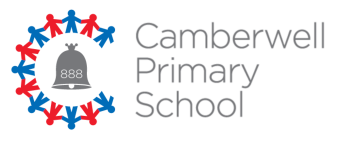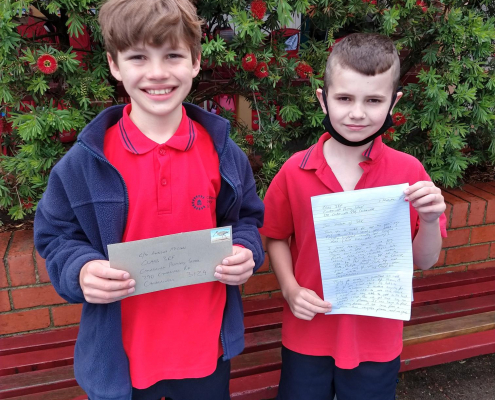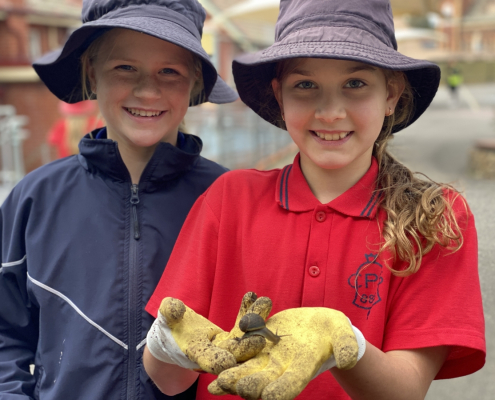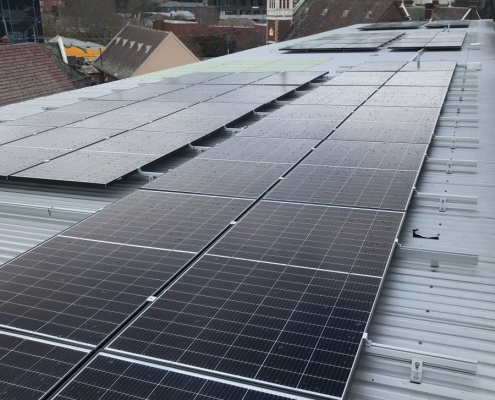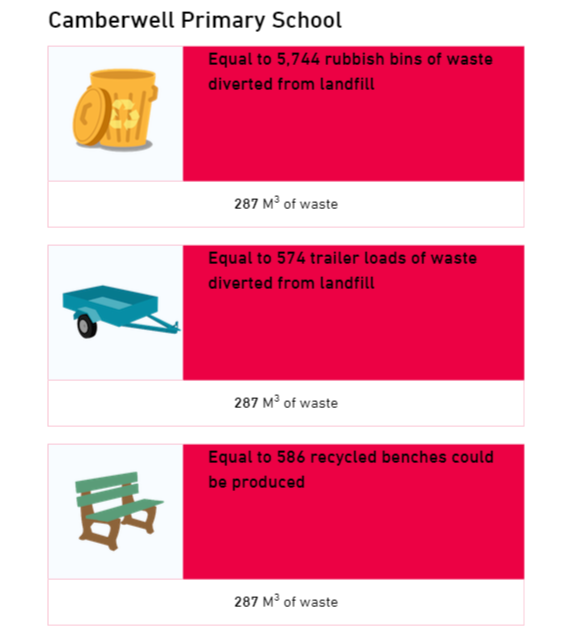Working towards a Sustainable Future
Sustainability at Camberwell Primary School
At Camberwell Primary School, we are committed to including a sustainability/environmental focus through Integrated Units across all year levels and as part of daily classroom practices. Our curriculum is designed with the intention of creating teaching and learning opportunities that reflect important environmental issues in the areas of Waste, Energy, Water and Biodiversity.
From early on, our students are encouraged to practise the language of reduce, reuse, recycle and rethink (in both English and French!). They are exposed to natural materials through structured learning tasks and developmental play and inspired to observe and appreciate the world around them.
Discussions about current events that affect our physical world and its flora and fauna continue to be part of learning as students move through the school. Projects may involve researching particular native animals, the threats to their survival and how we can act to protect them.
As students grow and learn, their investigations into the environment and our impact as humans becomes more sophisticated as they explore sustainable business practices. They identify how we, as consumers, can make a difference.
Excursions may take an environmental path too, with visits to the Dolphin Research Centre, eco farms and environmental parks such as CERES. Incursions, where facilitators come to the school, also impart a green message through teaching students how to create their very own beeswax wraps or construct miniature habitats.
Camberwell Primary School students are encouraged to be responsible and respectful citizens who make informed decisions to reduce the impact on their environment.
Yearly Reports
The CPS Sustainability Journey in 2021
2021 was a fabulous year for Sustainability at CPS!
We have been focusing on completing the Biodiversity module for the Resource Smart Schools model, and working towards achieving our 2nd star.
We were selected by Boroondara Council to be part of the Schools for Wildlife Project. The aim of this project was to support primary schools to plan and plant an Indigenous habitat garden on the grounds to increase biodiversity, provide habitat for wildlife, foster a sense of connection to nature in students; and, support environmental curriculum outcomes. The area around the portables was selected and with a lot of wonderful help from Boroondara Council, it was cleared of weeds and non-Indigenous plants such as agapanthus. A small frog bog was installed and the area was mulched. Students in 5A planted and fenced the area and the garden is now growing beautifully. We are greatly enjoying some spring flowering!
CPS was fortunate to receive a place in this year’s Boroondara Sustainability Summit, an initiative also run by Boroondara Council and affiliated by organisations such as CERES and Kids Teaching Kids. Our Summit team comprised of Imogen Byrne, Aiko Deighton, Henry Hutchinson, Holly Collette, Ricky Wu, Zara Lienert, Naila Ng and Pascal Franco Sageman. Their topic was Indigenous plants. The team presented their investigations about Indigenous plants including their cultural and medicinal uses, their role in supporting the environment through encouraging biodiversity, as well as notions of how our sense of smell can help us to identify Indigenous plants. We were also excited to be asked to present at this year’s School Sustainability Festival, an annual event organised by the Port Phillip Eco Centre. This acknowledged students’ environmental and leadership achievements. The video created for the Boroondara Sustainability Summit was shown and our students also participated in a live question and answer session. Our students’ video presentation involved their investigations into Indigenous Plants – their traditional, cultural and medicinal uses, their practical uses for basket-making and weaving, and their importance to biodiversity thus supporting native wildlife.
We were all excited when our 29Kw solar system was installed and switched on in October, but the most excitement was for Costa Georgiadis, who we hosted as part of the celebrations for Boroondara Council’s first anniversary of the FOGO compost program. It was a wonderful day with gorgeous weather and inspiring stories from local residents and CPS students, topped off with a visit from “Costa the Composter” who entertained us all with his thoughts on compost. Some other green initiatives this year … students enthusiastically took part in Clean Up Australia Day, National Tree Day and the Aussie Backyard Bird Count.
In class students wrote letters to Craig Reucassel from The War on Waste to share what they are doing at home. In Visual Arts, students drew engaging art works to echo the messaging of Plastic-Free July and also created some stunning orangutan portraits to support The Orangutan Project. Phew! Looking forward to seeing what sustainable projects our students will be involved in for 2022!
The CPS Sustainability Journey in 2020
2020 saw us further our commitment to sustainability by continuing to work on the ResourceSmart Schools Program administered by Sustainability Victoria.
The beginning of the year bought exciting news that we have been selected as part of the Boroondara Schools for Wildlife Project whose aim is to support primary schools to plan and plant an indigenous habitat garden on their grounds to increase biodiversity, provide habitat for wildlife, foster a sense of connection to nature in students and support environmental curriculum outcomes. Like many other projects in 2020 this was placed on hold, and we will be involved in 2021.
A biodiversity audit was completed by Year 5 students during our brief return to school in June and gave us ideas for improvement of our school grounds and how to increase our biodiversity going forward.
Our recycling program was consolidated and expanded with recycling stations set up on both campuses and at TeamKids our OSHC operator. Additional Green Cones were installed and are working well.
A waste audit was completed and Year 6 and their buddies were involved in Clean Up Australia day.
During lockdown we continued to communicate with our community via the Newsletter and Compass and ran a Wildlife photography competition to encourage students to get out and explore their local areas.
The Sustainability Subcommittee continued to meet via zoom and a student green team was set up and also met via zoom. Year 5 Green team members participated in the School Sustainability Festival: Celebrating Youth Leadership in Climate and Biodiversity in November and were inspired and enthused and ready to make 2021 the year of sustainability at CPS.
The CPS Sustainability Journey in 2019
2019 saw CPS further our commitment to sustainability by joining the ResourceSmart Schools Program administered by Sustainability Victoria.
A Sustainability Subcommittee of school council was formed, enabling parents and teachers to work together with the student Green Team to further a number of sustainability initiatives. A School Environmental Management Plan was drafted and several new policies including Green Purchasing and Sustainability were approved by school council.
Some of the highlights for the year were the removal of bins in the school grounds and the implementation of more recycling which saw us reduce waste to landfill at school by 100M3 which is amazing!
We also strongly encouraged nude food and installed green cones that digest food waste were installed at both the junior and senior school campuses. Buckets were put under drinking taps to save water and an energy audit was also done by students. In addition to recycling in the classrooms, batteries, mobile phones, soft plastic, writing instruments and dental products and recycling was made available to the school community at reception.
There was plenty of fun on the way too with students organising the first Enviro walkathon where students completed laps of the local park and raised $1859 for the newly established Sustainability Fund. Orange Day also raised money that was donated to sponsoring orangutans.
CPS participated in Clean Up Australia, Walk to School, Ride to School days and World Environment Day. Wherever possible, sustainability was included in the curriculum including things such as the energy audit into the science curriculum, the transport audit being used as a data project and making beeswax food wraps as an art project.
Staff and students attended the Student Environment Leadership Program at CERES. Towards the end of the year, we heard the exciting news that CPS had been selected by Boroondara City Council to be part of the Boroondara Schools for Wildlife Project.
Waste
Wednesday, 24 June, 2020, six enthusiastic Year 3 volunteers: Nishkka, Ella, Hadley, Tara, Mia and Jarvis conducted part of our Waste Audit. The purpose of this exercise is ultimately to reduce the amount of waste leaving our school.
Our students identified bins on the Senior Campus, recording the number of receptacles and types of waste that are collected such as landfill/rubbish bins, co-mingle recycling bins, compost collection buckets, paper re-use trays, soft plastics and so on.
The team then focused their energy towards “landfill” and collected six of these bins from high-traffic areas of the school. Our fearless “Waste Warriors” then dumped and sorted the contents. We were very interested (and perhaps some of us slightly repulsed!) at our discoveries!
This investigation stimulated some questions: Do we have the right bins in the right place? Are students and staff using the bins correctly? Will it all end up in the right location? Can we do more to reduce the amount of waste we generate? … and how!?
The Waste Warriors are still compiling their report from the Waste Audit and look forward to sharing it with you next term.
Water
Content coming soon…
Energy
Content coming soon…
Biodiversity
